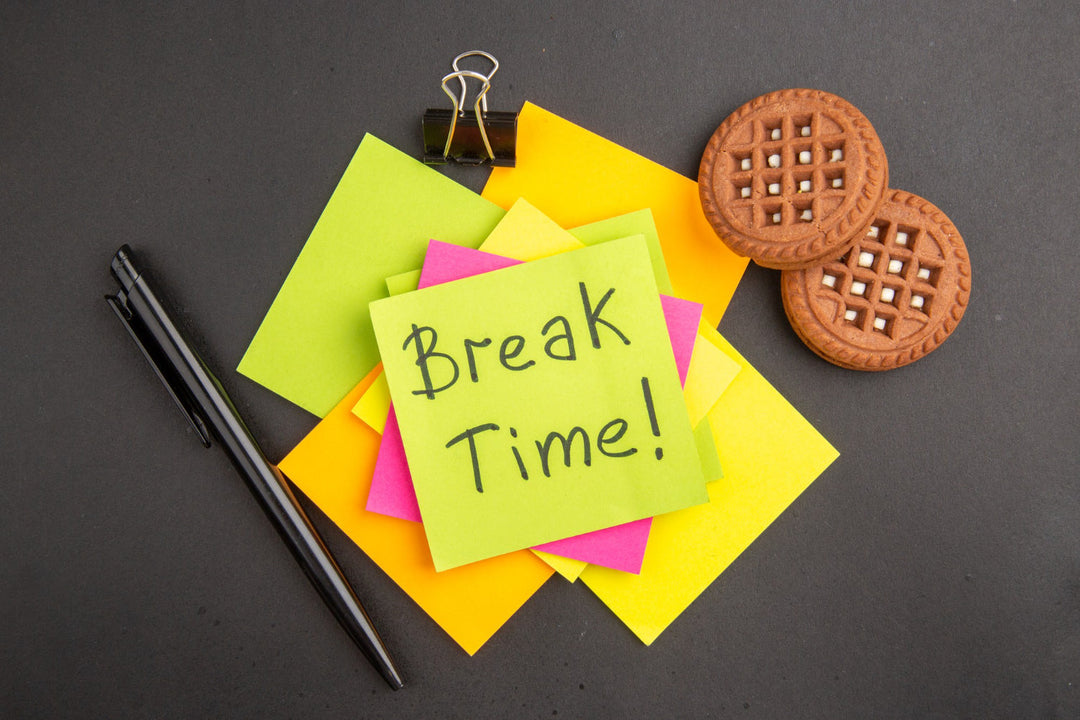Your Nervous System Deserves a Break

If you’ve been feeling tense for so long that you’ve started to think it’s just “how you are,” this one’s for you. Tight shoulders, shallow breath, irritability over the smallest things, that buzz in your chest you can’t quite name - it’s not all in your head. It’s in your nervous system.
Your body isn’t built to live in constant alert mode. But most of us are doing exactly that. Between work pressure, emotional load, overstimulation, and that ever-present hum of uncertainty, your nervous system is just trying to keep up. And when it can’t? You don’t just feel stressed, you start feeling disconnected, exhausted, and way too reactive.
That’s your body asking for support. Not just another deep breath or a meditation app you’ll never open. Real support. The kind that helps your system shift out of survival mode and into something softer. Something more sustainable.
What Your Nervous System Actually Does
Let’s start with the basics. Your nervous system is your body’s command center. It regulates your mood, sleep, digestion, immunity, focus - basically everything that keeps you functioning. And it’s constantly scanning your environment for cues of safety or danger.
When it perceives stress, your sympathetic nervous system (aka “fight or flight”) kicks in. That’s not always bad - it helps you get through a tough workout or avoid actual danger. But if your system stays in that state too long, it forgets how to shift back into “rest and digest.” That’s where the problems start.
Over time, chronic stress floods your body with cortisol, disrupts your sleep, tanks your immune response, and makes it way harder to feel calm, even when nothing’s technically wrong.
Signs You’re Running on Empty
You’re not sleeping well, even when you’re tired. You’re snapping at people you love. You feel wired and drained at the same time. Your digestion’s off. Your thoughts are racing. You’ve been doomscrolling for an hour and you have no idea why.
These aren’t personality flaws. These are signs your nervous system is overworked and under-supported. And the solution isn’t to just “relax” harder. It’s to create real safety in your body. A sense of groundedness. A way back to balance.
Small Shifts That Make a Big Impact
You don’t need to overhaul your life or become a full-time self-care influencer. What you need is space; tiny moments that remind your body it’s okay to slow down.
Start with your breath. A few intentional exhales can signal safety to your brain faster than any pep talk. Try breathing in for four counts, out for six. Repeat for a minute. You’ll feel the shift.
Add some warmth. A hot drink. A long shower. A weighted blanket. These aren’t indulgences. They’re tools. And your body responds to them.
Get outside. Even five minutes of fresh air and natural light can help reset your nervous system’s rhythm. Your brain is wired for nature, not endless screens and fluorescent lights.
And move. Not to burn calories, but to release tension. A walk. A few stretches. Dancing in your kitchen. Movement helps your body process stress physically, not just mentally.
Ingredients That Help You Downshift
Adaptogens are natural compounds that help your body adapt to stress. They don’t sedate you or force a certain mood. They just make it easier to respond instead of react. To feel steady instead of constantly on edge.
Reishi is a favorite for this. It’s been used for centuries to support calm, sleep, and emotional balance. Think of it as a soft landing for your nervous system.
Ashwagandha is another powerhouse. It helps regulate cortisol and promotes resilience. Not in a hypey, hustle kind of way. In a “let’s actually give your body what it needs” kind of way.
And if your stress is messing with your focus, lion’s mane can help bring clarity without the buzz. Because sometimes feeling calm means clearing the fog, not just numbing out.
Create a Ritual of Safety
Rituals aren’t just routines. They’re cues. They tell your body what’s happening and what it’s allowed to feel. A nighttime drink with reishi. A dropper of calm-supporting herbs before a stressful meeting. A five-minute stretch break in between tasks.
The ritual itself is simple. But the consistency is what trains your nervous system to trust it.
And that trust? That’s everything.
You Don’t Need to Earn Rest
One of the biggest lies in wellness culture is that you have to earn your downtime. That you can only rest once you’ve finished the list, hit the goal, solved the problem. But your nervous system doesn’t care about your calendar. It cares about whether you’re safe.
And if you wait for everything to calm down before you give yourself a break, you’ll be waiting forever.
Start now. Even if your to-do list isn’t done. Even if the house is messy. Even if you don’t “feel like you’ve done enough.” Your nervous system needs breaks to function. And taking one is not a luxury. It’s a biological need.
It’s Okay to Let Go
The weight you’ve been carrying? It doesn’t have to be yours forever. The pressure to keep it all together, to be productive, to stay upbeat while your body is screaming for stillness - that’s not sustainable.
You’re allowed to rest. You’re allowed to pause. You’re allowed to build rhythms that support your actual life, not some curated version of what wellness “should” look like.
Because the truth is, you can’t pour from a nervous system that’s fried. And you don’t need to prove anything to anyone to deserve feeling calm.
Start With One Thing
Your nervous system didn’t get overwhelmed overnight, and it won’t recover that fast either. But you can start. One sip. One breath. One small shift toward support.
This is how you come back to yourself. Not by pushing. Not by fixing. But by giving your body what it’s been asking for all along: a break.

